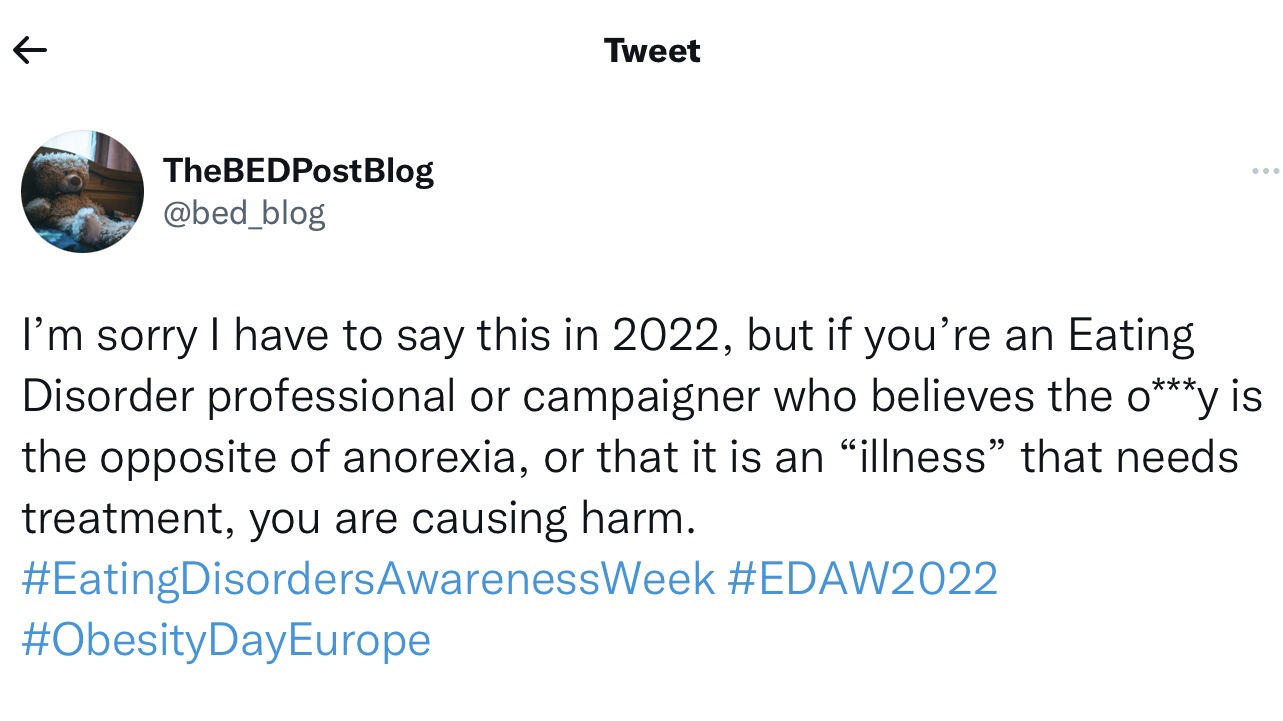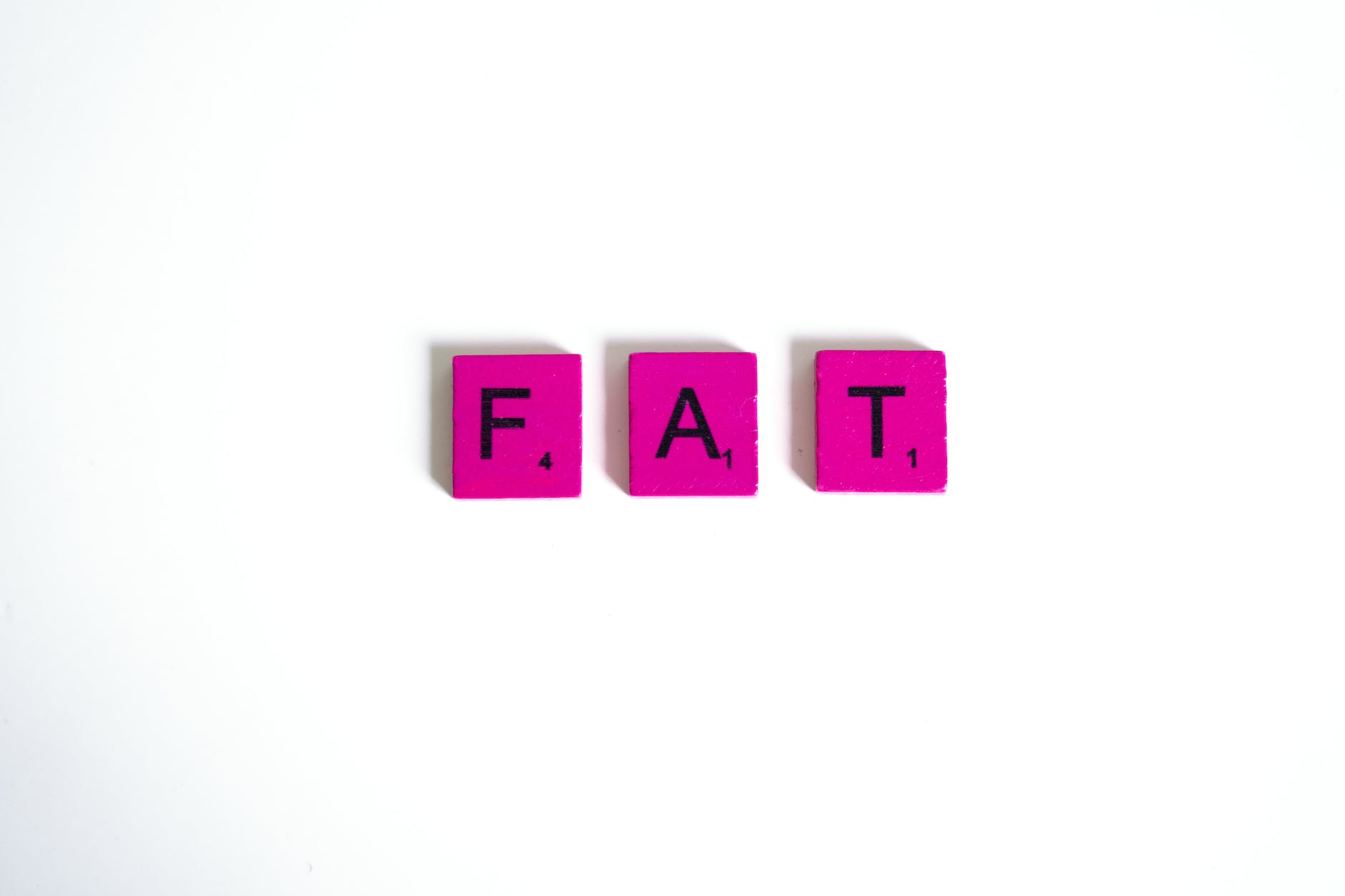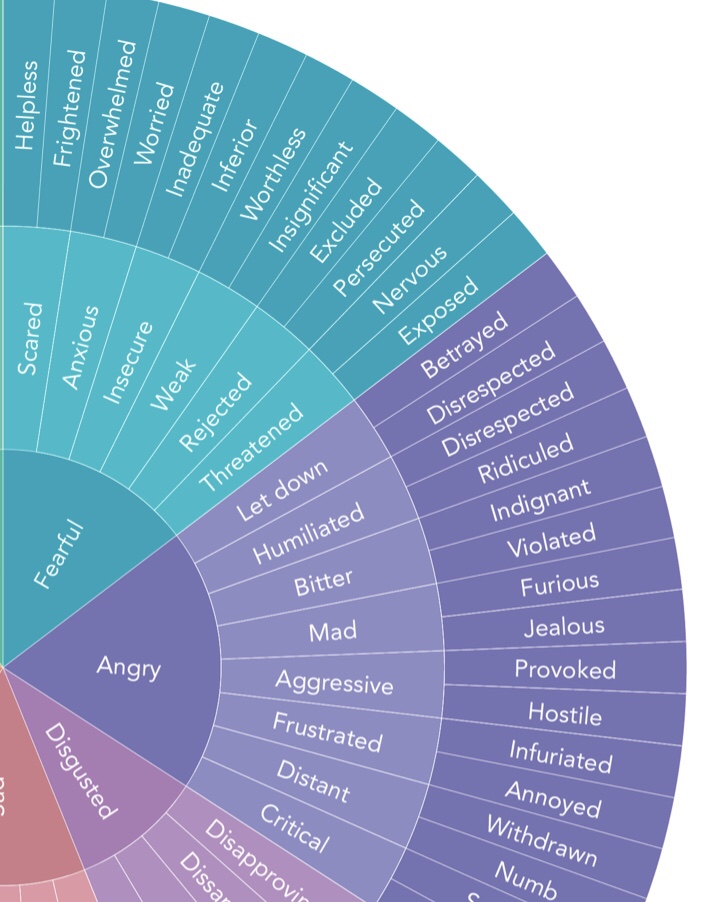Tag: weight stigma
-
Does restriction cause eating disorders?
There’s been a lot of debate about restriction causing eating disorders recently. Now I’m not a scientist. I’m someone in recovery from an ED. Someone with over 40 years of experience of eating disorder behaviours. Was my illness caused by restriction? It was a potential factor, but not the main cause. Did restriction keep me…
-
That time when I was fit and healthy
There’s a secret I’ve been keeping since my twenties. A particular time when my ED voice was at its loudest. It’s this time I go back to whenever I question whether having an ED was really so bad, or whether I was ever really ill at all. In this blog, I am sharing it for…
-
A fortnight of fatphobia
These last couple of weeks the anti-ob***y rhetoric seems to have hit an all time high. First the UK Government announced it’s going to start weighing children in school. Then a group of dentists in New Zealand published a highly suspect study about their miraculous new device designed to keep fat peoples jaws’ closed. Both…
-
Fat Girl Thin Then Fat Again
There’s no point denying it. I am fat, obese, curvy, plus size, or however else you want to phrase it. I have used disordered eating as a way to control my emotions and deal with stuff for nearly 40 years. For nearly 30 of those I was told by medical professionals to go on a…
-

O***y Day, weight stigma, and triggers
Content warning: eating disorder and intrusive thoughts. I’m going to start by saying how grateful and happy I am to have found the online ED recovery community. I have learned so much from being a part of it, and have been at times overwhelmed by the welcome and support I have received. However, there have…
-

Feeling fat
What feeling “fat” meant for me when I had an eating disorder: 1/ I felt physically bloated because: 2/ I was feeling ashamed, guilty and hating myself because I’d binged, purged or both, and was taking it out on my body. 3/ I was struggling to deal with difficult emotions completely unrelated to my eating…
-

If…
If eight year-old me, Fat, alone, sad, and scared, Had been thin and restricting, Would somebody have cared? If eighteen year-old me, Away from home that first time, Had lost weight and not gained it, Would they have noticed the signs? If twenty-eight year-old me, Purging regularly, Had lost even more weight, Would they have…
